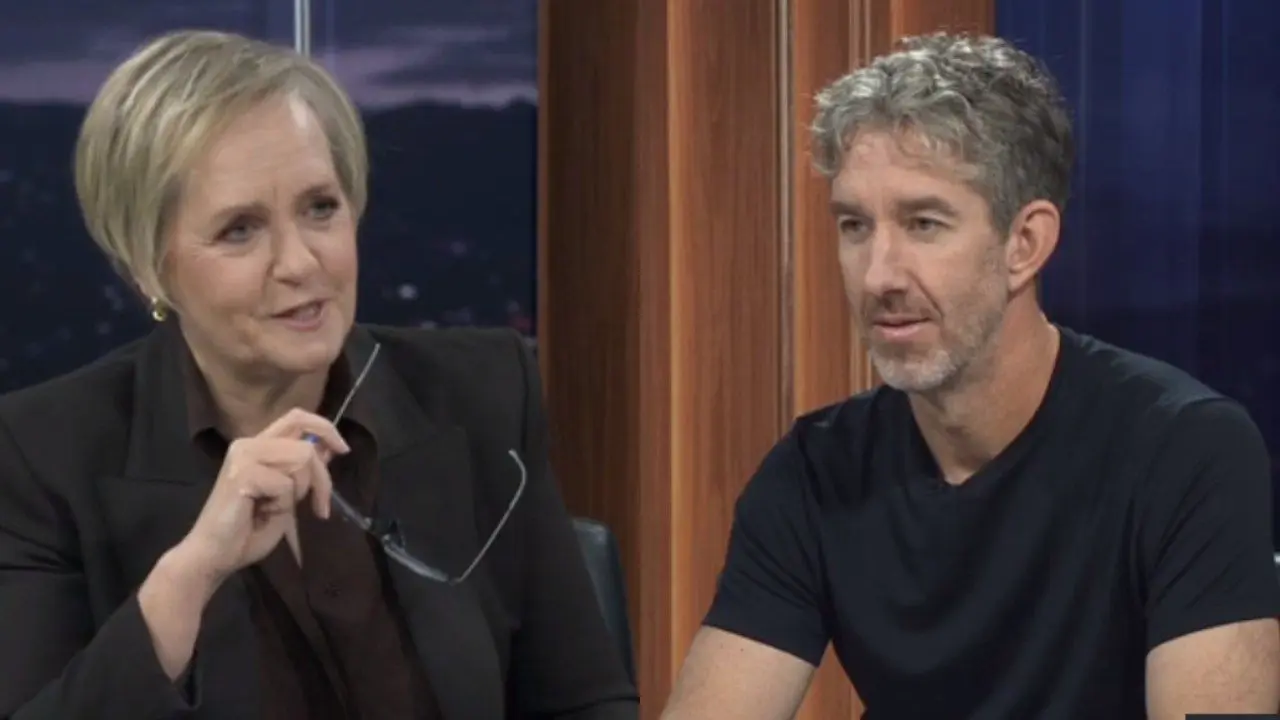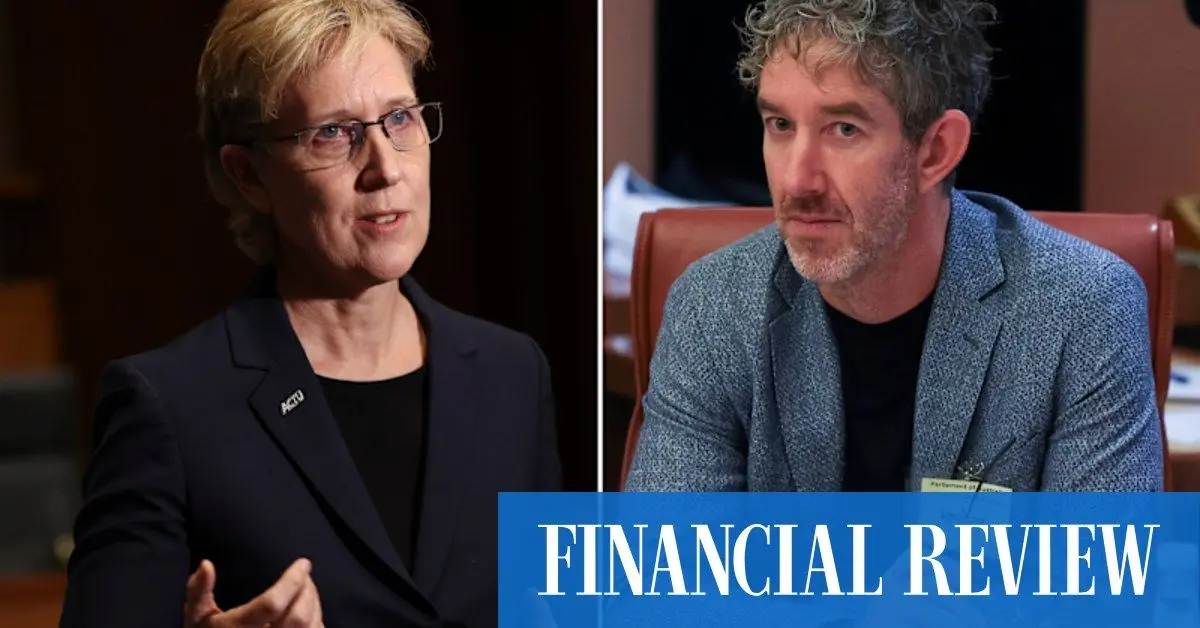Atlassian Co-Founder Scott Farquhar Sparks Controversy Over AI Copyright Exemptions in Australia
2 Sources
2 Sources
[1]
Scott Farquhar thinks Australia should let AI train for free on creative content. He overlooks one key point
CEO of Tech Council of Australia and Atlassian founder's argument hinges on whether AI goes on to create something 'new and novel' Australia should adopt US-style copyright law to allow artificial intelligence to suck up all creative content or risk harming investment in the industry in Australia, according to Atlassian founder, Scott Farquhar. Farquhar, the Tech Council of Australia CEO, told ABC's 7.30 program on Tuesday: "all AI usage of mining or searching or going across data is probably illegal under Australian law and I think that hurts a lot of investment of these companies in Australia". This is because, he said, Australia doesn't have fair use exemptions coded into copyright law like the US does. Farquhar's claim overlooks that this is not a settled issue in the US, and could have devastating effects on creative industries. Companies developing AI such as Atlassian, Google and Meta, want a text and data mining exemption put into copyright law to make AI able to train on all human works in perpetuity without paying for it. Farquhar's argument is that it is not theft of people's work unless the AI is used to "copy an artist directly" such as creating a song in their style. "I do think people would say that, hey, if people are going to sit down with a digital companion, an AI song creator and they collaboratively work with an AI to create something new to the world, that's probably fair use." Farquhar said the benefits of large language models outweigh the issues raised by AI training its data on other people's work for free. His argument hinges on whether that AI then goes on to create something "new and novel" which is referred to in copyright as being transformative - creating something new. He said he would have no issue with someone taking what he had created and using it as long as it was "transformative". "If someone had used my intellectual property to compete with me, then I think that is an issue, directly with me. If they'd used all the intellectual property of all the software on the world to help people write software better in the future, I think that is a fair use." US law is not settled on AI training being fair use. The US Copyright Office noted in its May pre-print report on generative AI training that there are dozens of lawsuits challenging AI companies using fair use as an excuse for training large-language models on copyrighted works without paying. In the US, there are also factors to consider whether something is fair use include: In US case law, the transformative nature of what is made of what was taken is the first important factor in fair use, Australian law firm Gilbert + Tobin noted in a May publication but it is not the only factor to consider, with the impact on the market of the copyrighted work being key. The US supreme court has twice described this as "undoubtedly the single most important element of fair use", according to the US Copyright Office report. "The copying involved in AI training threatens significant potential harm to the market for or value of copyrighted works," the report stated. "Where a model can produce substantially similar outputs that directly substitute for works in the training data, it can lead to lost sales. Even where a model's outputs are not substantially similar to any specific copyrighted work, they can dilute the market for works similar to those found in its training data, including by generating material stylistically similar to those works." The Copyright Office stopped short of recommending legislative intervention in the US, noting that voluntary licensing were already under way with some AI companies, and allowing licensing would allow AI innovation to continue to "advance without undermining intellectual property rights." Farquhar's argument that how generative AI uses copyrighted works would stack up if there were proper guarantees that all usage would be transformative and would not affect the markets from which they're drawing from. In many of the industries, AI could have devastating effects. In news, for example, AI summaries in Google search already mean people click through to stories less frequently for information, and referrals from AI chatbots compared to the amount of times that AI crawls a page are even worse. To argue that fair use for AI based on the US law is something Australia should aspire to overlooks that it's hardly settled law, and is being hard fought in the courts. Rushing to give the tech companies what they want in the name of innovation for one new industry could come at the expense of many other industries.
[2]
Tech billionaire defends AI companies stealing IP in trainwreck ABC interview
Co-founder of Atlassian Scott Farquhar has come under fire in a tense interview on the ABC's 7.30 program, where he was repeatedly pressed on whether AI companies should be allowed to use copyrighted material without compensating creators. Farquhar appeared on the programme to promote the economic potential of artificial intelligence ahead of next week's productivity roundtable. But the conversation with presenter Sarah Ferguson quickly turned to the growing anger among Australian artists, who argue their work is being exploited by tech giants. Defending calls for AI companies to receive exemptions under Australia's copyright laws, Farquhar tried to argue there was a reasonable fair use exemption. "Copyright exists to basically give artists who create something a right to almost all the uses of it, and we have a thing called fair use. AI is a broad and transformative technology," he told the ABC. Currently, Australia lacks explicit provisions for 'fair use' in the context of AI, making the practice of scraping content for training language models legally murky. Farquhar argued this uncertainty is harming investment. "All AI usage of mining or searching or going across data is probably illegal under Australian law. And I think that hurts a lot of investment." Farquhar was then confronted with a hypothetical scenario involving his own intellectual property - with Ms Ferguson asking how we would feel if someone had copied the core of Atlassian to build a rival product without paying him. "If it had been transformative, yes," Farquhar said. "If someone had used my intellectual property to compete with me, then I think that is an issue. If they'd used all the intellectual property of all the software on the world to help people write software better in the future, that is a fair use." The exchange raised eyebrows, particularly given his admission that artists like Midnight Oil should not necessarily be able to block the use of their work by AI companies. When challenged that creators were not being paid, Farquhar replied that the "ABC doesn't pay people when they quote an article." When pressed further on whether the benefits of AI outweigh the rights of individual Australian creators, Farquhar pointed back to the idea of 'fair use'. "Like, I think there are benefits to that. We have to work out what is fair use for these AI models," he said.
Share
Share
Copy Link
Scott Farquhar, Atlassian co-founder and Tech Council of Australia CEO, advocates for US-style copyright law in Australia to allow AI companies to use creative content without compensation, sparking debate on fair use and potential impacts on creative industries.
Atlassian Co-Founder Advocates for AI Copyright Exemptions
Scott Farquhar, co-founder of Atlassian and CEO of the Tech Council of Australia, has ignited a heated debate over artificial intelligence (AI) and copyright law in Australia. In a recent interview on ABC's 7.30 program, Farquhar argued that Australia should adopt US-style copyright laws to allow AI companies to freely use creative content for training purposes
1
2
.
Source: Sky News
The Case for Fair Use
Farquhar contends that the current Australian copyright law, which lacks explicit fair use provisions for AI, is hindering investment in the country's AI industry. He stated, "All AI usage of mining or searching or going across data is probably illegal under Australian law and I think that hurts a lot of investment of these companies in Australia"
1
.The tech billionaire's argument hinges on the concept of "transformative" use, suggesting that if AI creates something "new and novel" based on existing works, it should be considered fair use. Farquhar explained, "If someone had used my intellectual property to compete with me, then I think that is an issue, directly with me. If they'd used all the intellectual property of all the software on the world to help people write software better in the future, I think that is a fair use"
1
.Controversy and Criticism
Farquhar's stance has drawn significant criticism, particularly from the creative industries. The debate centers around whether AI companies should be allowed to use copyrighted material without compensating creators
2
. Critics argue that this approach could have devastating effects on various sectors, including news, music, and visual arts.Unsettled Legal Landscape
It's important to note that even in the United States, the legality of AI training on copyrighted works is not settled. The US Copyright Office's May pre-print report highlighted dozens of lawsuits challenging AI companies' use of fair use as a justification for training large language models on copyrighted works without payment
1
.Market Impact Concerns
A key factor in determining fair use, according to US law, is the impact on the market for the copyrighted work. The US Copyright Office report stated, "The copying involved in AI training threatens significant potential harm to the market for or value of copyrighted works"
1
. This concern extends to potential lost sales and market dilution for works similar to those found in AI training data.Related Stories
Australian Context and Future Implications
As Australia considers changes to its copyright laws, the debate sparked by Farquhar's comments highlights the complex balance between fostering AI innovation and protecting intellectual property rights. The outcome of this discussion could have far-reaching implications for both the tech industry and creative sectors in Australia and potentially influence similar debates globally.
Conclusion
The controversy surrounding Scott Farquhar's advocacy for AI copyright exemptions underscores the ongoing challenges in adapting legal frameworks to rapidly evolving technologies. As the debate continues, policymakers, tech companies, and creative industries will need to find a balance that encourages innovation while safeguarding the rights and livelihoods of content creators.
References
Summarized by
Navi
[1]
Related Stories
Australia Debates AI Copyright Exemptions: Balancing Innovation and Creative Rights
06 Aug 2025•Policy and Regulation

Australia Rejects Copyright Exemption for AI Training, Prioritizing Creative Industries
26 Oct 2025•Policy and Regulation

ACTU's AI Content Payment Agreement Claim Sparks Debate in Australian Creative Industry
21 Aug 2025•Policy and Regulation

Recent Highlights
1
ByteDance Faces Hollywood Backlash After Seedance 2.0 Creates Unauthorized Celebrity Deepfakes
Technology

2
Microsoft AI chief predicts artificial intelligence will automate most white-collar jobs in 18 months
Business and Economy

3
Google reports state-sponsored hackers exploit Gemini AI across all stages of cyberattacks
Technology





